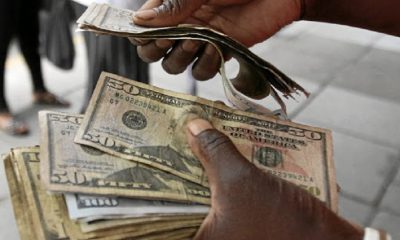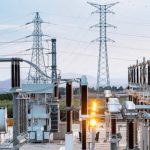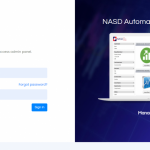Economy
5 Real Use Cases of Cryptocurrency

Cryptocurrency and blockchain technology is one of the major advancements witnessed in recent times. Digital currency is almost taking the place of physical money due to its advantages.
Today, the crypto market is worth over a trillion US dollars. Crypto has gained mass adoption while its popularity has increased despite its ups and downs. The number one cryptocurrency, Bitcoin, has become a legal tender in El Salvador (2021) and the Central African Republic (2022). The volume of Cryptocurrency holders continues to grow because, unlike fiat cash, it’s accessible to everyone. Taking Bitcoin as an example, you can easily buy bitcoin with gift cards.
Although Bitcoin, Ethereum, and other cryptocurrencies have enjoyed huge success, many still don’t know about cryptocurrency.
In this post, we’ll learn about cryptocurrencies and their real use cases. Those who have been in the dark will see the opportunities that abound in cryptocurrency.
What is Cryptocurrency?
Cryptocurrency is a digitally encrypted, decentralized currency that is not linked to or regulated by any government or central bank.
It is based on blockchain technology, which is a distributed ledger framework. Bitcoin is the first cryptocurrency created which has led to the creation of others alike known as altcoins. It was created by an individual with the pseudonym Satoshi Nakamoto as a solution to the global financial crisis of 2008.
Cryptos are categorized as virtual or digital currencies. They were originally developed to provide an alternative mode of payment for online transactions.
Cryptocurrencies are highly volatile which makes it very risky to invest. This is one of the reasons many nations of the world are yet to adopt it.
5 Use Cases of Cryptocurrency
Here are the major reasons many people today own cryptocurrency. If your question has been about what you can do with cryptocurrency, then you need to read this.
- Low-Cost Money Transfers
One of the biggest advantages of bitcoin is that, compared to other electronic payment systems, it has a very low transaction cost. Bitcoin’s transaction fee is not nearly as costly as the fees on money transfers brokered by banks, credit cards, and commercial software.
Bitcoin is used by immigrants to send money home to their loved ones at a low cost. This is one of the main reasons countries like El Salvador & the Central African Republic turned to Bitcoin for their citizens. BTC allows immigrants to send cheap, practically-instant remissions.
- An Alternative Store of Wealth
Cryptocurrencies such as bitcoin can be used as a store of wealth just like your physical money. Cryptocurrencies are stored in wallets that cannot be accessed by anyone else.
While your bank accounts and assets could be frozen, that cannot be said of crypto in your wallet because only the individual with the private keys to the digital wallet can have access to it.
You can buy crypto assets to hold for a short or long-term basis. If you decide to trade your crypto asset then you’ll need a place that meets your requirement.

Prestmit is one of the best digital exchange platform to trade cryptocurrency
- Make Private Transactions
Many prefer to make transactions today with cryptocurrency as it cannot be traced by anyone. Cryptocurrency enables users to make anonymous financial transactions.
That means individuals can make money transfers without having to explain to a bank why they are sending a large sum of money, what the sources of the funds are, and to whom they are sending it, which can delay the transaction and involve unnecessary bureaucratic processes.
- Travel the World & Beyond
Cryptocurrency has grown since it was officially launched in 2009. Digital currencies are accepted as payment for travel. Top travel agents accept Bitcoin as a payment method to book flights, car rentals, and hotels.
The growth of the bitcoin ATM market also means travellers are now able to convert their cryptocurrency into local currency in most major cities around the world. If you’re not the type that doesn’t want to move around with physical money, then this should be a good option for you.
Crypto assets such as BTC, DOGE, ETH, and so on are available all over the world. You can sell Bitcoin in Nigeria and other top crypto assets on your visit. This is how far crypto has really grown.
- Payment of Goods & Services
Bitcoin and other crypto assets like dogecoin are being used for payment of goods and services both online and physically. Tesla, NBA’s Mavericks, and many other companies now accept dogecoin for goods & services.
With bitcoin, you can buy luxurious cars like Lamborghini while Elon Musk’s Tesla will soon accept BTC for its electric-driven rides. You can also buy a range of other luxury goods such as art, fine wines, and real estate with cryptocurrency.
You’ll need to get the latest bitcoin news in Nigeria if you really want to make use of cryptocurrency. Crypto traders whether beginners or veterans need to be updated so as not to miss out on these enormous opportunities.
Conclusion
Cryptocurrency has several real-world use cases that make it one to own by many people in the world today. Its real-world use cases are also the reason it is seen as the future of money.
Cryptocurrency investment is the riskiest form of investment. If you must invest in it, make sure you put what you can afford to lose as return on investment is not guaranteed. Also, note that this article is not for financial advice but for educational purposes.
Economy
NASD Exchange in Red for Third Straight Session After 0.15% Fall
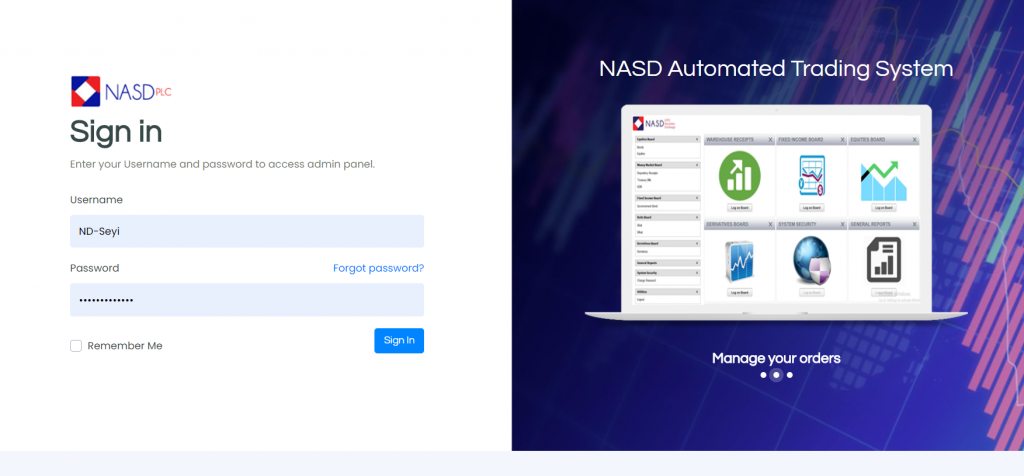
By Adedapo Adesanya
For the third straight session, the NASD Over-the-Counter (OTC) Securities Exchange closed bearish, further losing 0.15 per cent on Thursday amid weak demand for unlisted stocks.
During the session, the NASD Unlisted Security Index (NSI) declined by 5.70 points to 3,908.67 points from 3,914.37 points, and the market capitalisation lost N3.41 billion to end N2.338 trillion compared with the N2.342 trillion it ended on Wednesday.
The alternative stock exchange suffered a loss despite having more price gainers than price losers, with five for the former and four for the latter.
Okitipupa Plc lost N10.00 to close at N250.00 per unit versus midweek’s N260.00 per unit, Central Securities Clearing System (CSCS) Plc depreciated by N4.98 to N64.92 per share from N69.90 per share, Industrial and General Insurance (IGI) Plc dropped 4 Kobo to sell at 50 Kobo per unit compared with the previous day’s 54 Kobo per unit, and Acorn Petroleum Plc moderated by 1 Kobo to N1.32 per share from N1.33 per share.
Conversely, 11 Plc gained N13.65 to quote at N276.55 per unit versus the preceding session’s N263.00 per unit, FrieslandCampina Wamco Nigeria Plc appreciated by N6.10 to N84.15 per share from N78.05 per share, Food Concepts Plc expanded by 32 Kobo to N3.60 per unit from N3.28 per unit, Geo-Fluids Plc improved by 30 Kobo to N3.60 per share from N3.30 per share, and First Trust Mortgage Bank Plc increased by 10 Kobo to N1.09 per unit from 99 Kobo per unit.
Yesterday, the volume of transactions surged 2,797.1 per cent to 45.8 million units from 1.6 million units, the value of transactions jumped 315.2 per cent to N208.2 million from N50.1 million, and the number of deals soared 18.2 per cent to 39 deals from 33 deals.
At the close of business, CSCS Plc remained the most active stock by value (year-to-date) with 32.6 million units worth N1.9 billion, followed by Geo-Fluids Plc with 117.4 million units valued at N463.1 million, and Resourcery Plc with 1.05 billion units exchanged for N408.6 million.
Resourcery Plc ended the session as the most traded stock by volume (year-to-date) with 1.05 billion units sold for N408.6 million, trailed by Geo-Fluids Plc with 117.4 million exchanged for N463.1 million, and CSCS Plc with 32.6 million units traded for N1.9 billion.
Economy
Bulls Reaffirm Control of Nigeria’s Stock Exchange With 1.39% Surge

By Dipo Olowookere
Sell-offs in energy stocks could not bring down Nigeria’s stock exchange on Thursday, as the gains recorded by the others sustained the upward momentum.
Yesterday, the Nigerian Exchange (NGX) Limited further appreciated by 1.39 per cent on the back of a strong appetite for domestic equities, which are gaining traction among investors.
The banking index grew by 2.63 per cent, the consumer goods sector appreciated by 054 per cent, the insurance counter improved by 0.50 per cent, and the industrial goods space rose by 0.29 per cent, while the energy industry fell by 0.11 per cent.
When the bourse closed for the day, the All-Share Index (ASI) pointed northwards by 2,645.61 points to settle at 193,073.57 points compared with the previous day’s 190,427.96 points, and the market capitalisation soared by N1.698 trillion to N123.934 trillion from N122.236 trillion.
The trio of Deap Capital, Okomu Oil, and Fortis Global Insurance appreciated by 10.00 per cent each to N6.93, N1,459.70, and 55 Kobo apiece, while the duo of Infinity Trust Insurance and Zichis gained 9.96 per cent each to settle at N14.35, and N15.79, respectively.
On the flip side, the quartet of Tripple G, Multiverse, Secure Electronic Technology, and McNichols lost 10.00 per cent each to quote at N5.40, N25.20, N1.80, and N8.28, respectively, while Meyer declined by 9.80 per cent to N20.70.
Business Post reports that there were 52 appreciating equities and 26 depreciating equities on Thursday, showing a positive market breadth index and strong investor sentiment.
The busiest stock yesterday was Japaul with 80.1 million units valued at N293.3 million, Secure Electronic Technology sold 71.8 million units worth N136.5 million, Mutual Benefits transacted 58.7 million units for N277.6 million, Zenith Bank exchanged 53.2 million units valued at N4.5 billion, and GTCO traded 52.6 million units worth N6.2 billion.
Unlike the preceding session, the activity chart was in red after market participants transacted 898.5 million shares for N38.5 billion in 61,953 deals compared with the 3.7 billion shares worth N61.9 billion traded in 68,693 deals at midweek, implying a decline in the trading volume, value, and number of deals by 75.72 per cent, 37.80 per cent, and 9.81 per cent apiece.
Economy
Naira Fall 0.24% to N1,341/$1 at Official FX Window
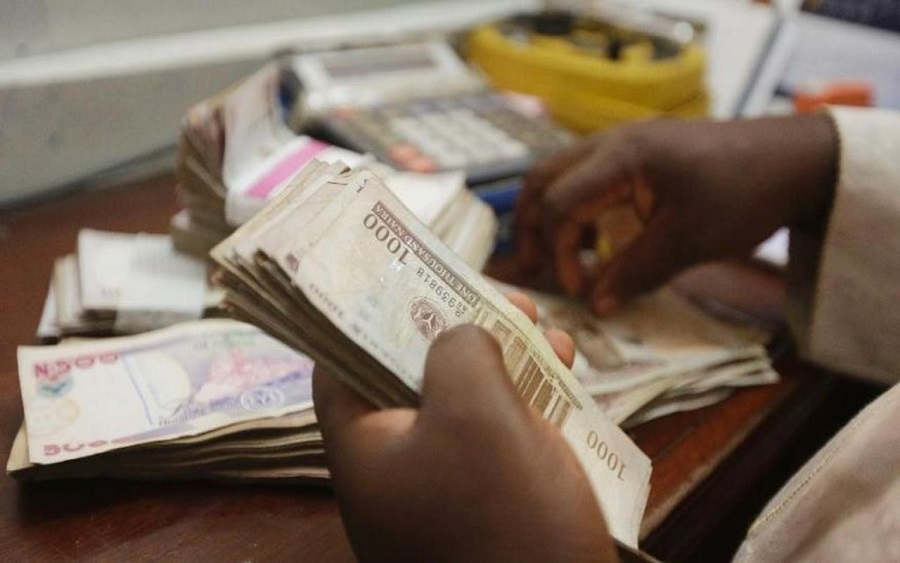
By Adedapo Adesanya
The Naira depreciated further against the Dollar in the Nigerian Autonomous Foreign Exchange Market (NAFEX) on Thursday, February 19, by N3.24 or 0.24 per cent to N1,341.35/$1 from the N1,338.11/$1 it was traded a day earlier.
However, it improved its value against the Pound Sterling in the official market during the session by N11.16 to sell for N1,805.86/£1 compared with the previous day’s N1,817.02/£1, and gained N7.83 against the Euro to close at N1,577.29/€1 versus Wednesday’s closing price of N1,585.12/€1.
At the GTBank forex counter, the Naira lost N2 against the greenback to settle at N1,349/$1 compared with the N1,347/$1 it was exchanged at midweek, and at the black market, the exchange rate remained unchanged at N1,370/$1.
The performance of the domestic currency in the spot market was weak yesterday amid prevailing dynamics of supply and demand, as the Central Bank of Nigeria (CBN) maintains its efforts to stabilise the foreign exchange market. The exchange rate remained within the expected range, lifted by strong forex inflows and central bank dollar sales to Bureaux de Change (BDC) operators.
Meanwhile, the cryptocurrency market remained bearish, as there was continued caution in coins amid shaky interest in the digital assets.
On the policy front, there were tentative signs of progress on the digital asset market structure bill. The White House hosted talks between crypto industry representatives and bankers, which yielded incremental movement, though no compromise has yet emerged.
Ripple (XRP) declined by 1.7 per cent to $1.39, Litecoin (LTC) went down by 1.3 per cent to $52.46, Cardano (ADA) dropped 0.8 per cent to trade at $0.2715, Dogecoin (DOGE) retreated by 0.7 per cent to $0.0978, and Ethereum (ETH) contracted by 0.2 per cent to $1,943.30.
On the flip side, Solana (SOL) appreciated by 0.8 per cent to $82.12, Bitcoin improved its value by 0.7 per cent to $66,854.86, and Binance Coin (BNB) chalked up 0.1 per cent to sell for $605.58, while the US Dollar Tether (USDT) and the US Dollar Coin (USDC) closed flat at $1.00 each.
-

 Feature/OPED6 years ago
Feature/OPED6 years agoDavos was Different this year
-
Travel/Tourism10 years ago
Lagos Seals Western Lodge Hotel In Ikorodu
-

 Showbiz3 years ago
Showbiz3 years agoEstranged Lover Releases Videos of Empress Njamah Bathing
-

 Banking8 years ago
Banking8 years agoSort Codes of GTBank Branches in Nigeria
-

 Economy3 years ago
Economy3 years agoSubsidy Removal: CNG at N130 Per Litre Cheaper Than Petrol—IPMAN
-

 Banking3 years ago
Banking3 years agoSort Codes of UBA Branches in Nigeria
-

 Banking3 years ago
Banking3 years agoFirst Bank Announces Planned Downtime
-

 Sports3 years ago
Sports3 years agoHighest Paid Nigerian Footballer – How Much Do Nigerian Footballers Earn









